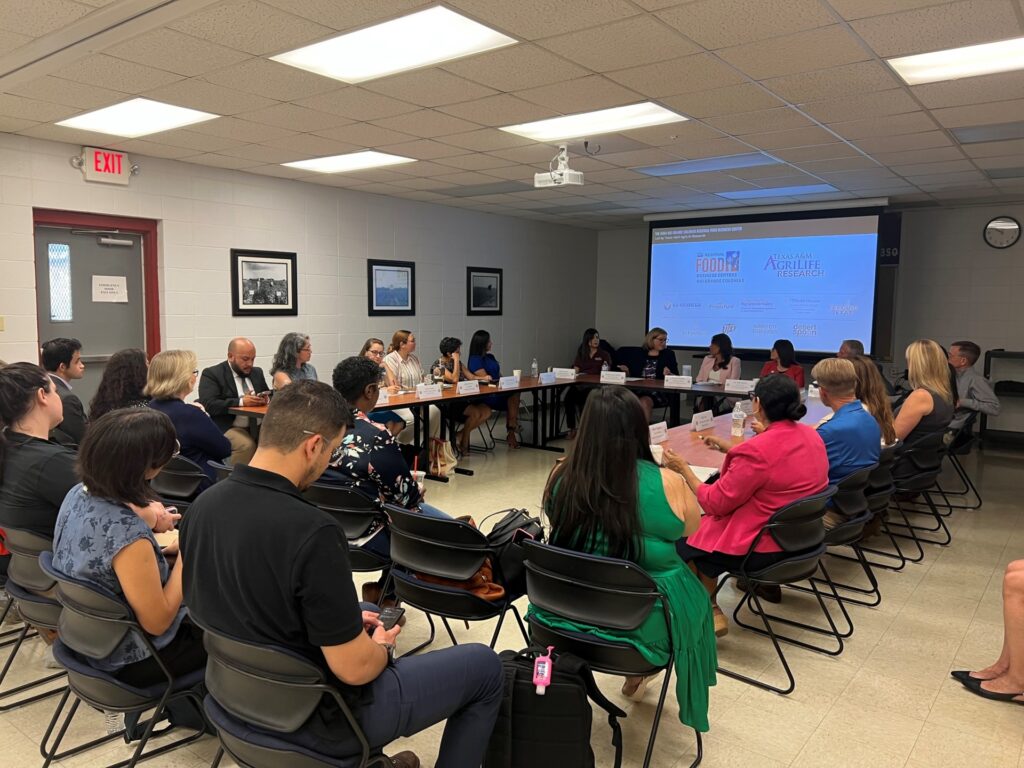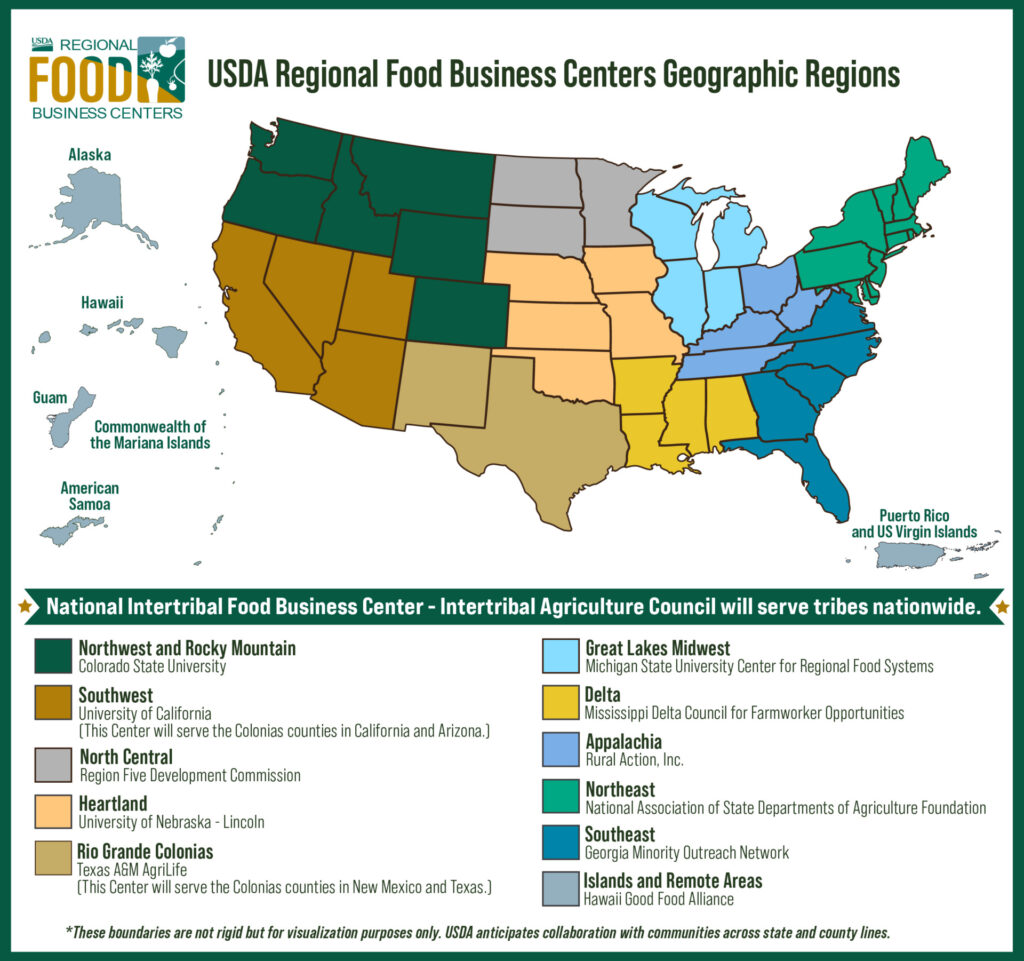Texas A&M AgriLife Research hosts USDA Undersecretary, U.S. Representative in El Paso
Collaborator roundtable reviews mission, expected impacts of Rio Grande Colonias USDA Food Business Center for underserved border communities

The Texas A&M AgriLife Research Center at El Paso on July 7 hosted federal policymakers and collaborators in the new Rio Grande Colonias U.S. Department of Agriculture, USDA, Regional Food Business Center, led by Texas A&M AgriLife Research.
A roundtable discussion among the group — comprised of about a dozen organizations along Texas’ and New Mexico’s international borders — centered on the mission of the new USDA center to facilitate food business opportunities in the underserved communities.
Jennifer Moffit, USDA undersecretary for marketing and regulatory programs, led the discussion with U.S. Rep. Veronica Escobar, D-El Paso; Beth Racine, Ph.D., director of the Texas A&M AgriLife center at El Paso; and Ricardo Samaniego, El Paso County Judge.
The roundtable session reviewed how the Regional Food Business Center will benefit colonias. Participants discussed the efforts their respective organizations will undertake to combat food insecurity across the USDA center’s coverage region.
“It was a strong turnout and show of support for the important work of this new food business center,” Racine said. “The discussions were fruitful, and our team is excited to embark on realizing the vision of the Rio Grande Colonias USDA Regional Food Business Center.”
Participants in the roundtable discussion included La Semilla Food Center, University of Texas Health Center for Community Health Impact, People Fund, University of Texas-Rio Grande Valley Center for Sustainable Agriculture and Rural Advancement, Feeding Texas, Border City Distribution, Desert Spoon Food Hub and University of Texas-El Paso among others.
A collaboration to expand business opportunities in colonias

Headquartered at the Texas A&M AgriLife center in El Paso, the Rio Grande Colonias USDA Regional Food Business Center is one of 12 new USDA centers that will provide coordination, technical assistance and capacity building. Its goal is to help farmers, ranchers and other food businesses access new markets and navigate federal, state and local resources — closing gaps to success across the U.S.
USDA announced $400 million in funding for the 12 centers in September 2022, with $30 million to establish the Rio Grande Colonias USDA Regional Food Business Center.
“It was great to be here in El Paso and be able to meet with the organizations that are uniting to design the work of the Rio Grande Colonias Regional Food Business Center,” Moffit said. “Communities need and deserve a strong local food system – one that brings more of the food dollar back to farmers and ranchers, builds resilient and diversified markets, creates local jobs, and provides nutrition security for all.
“I believe very strongly in locally led solutions, that we achieve more when people who are established and trusted in the region are empowered. And today, with the partners I met with, I see a recipe for success. Partnerships, locally led initiatives, innovative producers and communities working to build a shorter food value chain – this is a recipe for success.”
Escobar said the visit once again “underscores the Biden Administration’s commitment to investing in our communities where we need it most.”
“As Congress begins considering the farm bill reauthorization, I’m proud to reiterate the need to increase federal funding and representation for families in El Paso’s colonias, strengthen food supply chains, and support and bolster our local farms,” Escobar said.
Samaniego added, “The County of El Paso is thrilled to join our Texas A&M AgriLife center in the establishment of the Regional Food Business Center. We look forward to rolling up our sleeves in service to area producers and entrepreneurs — putting their unique products on the map, while addressing food insecurity among the most vulnerable populations throughout Texas and New Mexico.”
What’s next
Collaborators in the Rio Grande Colonias USDA Regional Food Business Center will now work to increase its roster of collaborators and colonia stakeholders along the U.S.-Mexico border. Immediate next steps of the center will be to hire staff, develop a governing structure using collective impact principles, build awareness of the new center, and identify eligible small- and medium-sized food and farm businesses that may benefit from the center’s work.


